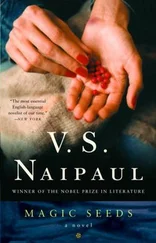The duke's grandsons moved to Bestwood soon after. They were too young to remember their father very well, so the move was uneventful. Aubrey, the older son and heir apparent, received the grooming expected of a Peer of the Realm. The duke showed little interest in his younger grandson. And it had stayed that way for several years.
Until two days previously, when he had asked Malcolm to find hunting clothes that might fit William. Malcolm didn't know what happened in the glade, or what the duke did there. But he felt honor-bound to protect William from it.
Malcolm left William standing in the cabinet only to find the duke standing in the far doorway, blocking his egress. His Grace had seen everything.
He glared at Malcolm. The majordomo resisted the urge to squirm under the force of that gaze. The silence stretched between them. The duke approached until the two men stood nearly nose to nose.
“Mr. Malcolm,” he said. “Tell the staff to return to their duties. Then fetch a coat for the boy and retrieve the carpetbag from my study.” His breath, sour with juniper berries, brushed across Malcolm's face. It stung the eyes, made him squint.
Malcolm had no recourse but to do as he was told. The duke had flushed out his grandson by the time he returned bearing a thick dun-colored pullover for William and the duke's paisley carpetbag. Malcolm made brief eye contact with William before taking his leave of the duke.
“I'm sorry,” he mouthed.
William's grandfather took him by the hand. The ridges of the fine white scars arrayed across his palm tickled the soft skin on the back of William's hand.
“Come,” he said. “It's time you saw the estate.”
“I've already seen the grounds, Papa.”
The old man cuffed the boy on the ear hard enough to make his eyes water. “No, you haven't.”
They walked around the house, to the brook that gurgled through the gardens. They followed it upstream, crashing through the occasional thicket. Eventually the crenellations and spires of Bestwood disappeared behind a row of hillocks crowned with proud stands of yew and English oak. They traced the brook to a cleft within a lichen-scarred boulder in a small clearing.
Though hemmed about by trees on every side, the glade was quiet and free of birdsong. The screeches and caws of the large black birds that crisscrossed the sky over the estate barely echoed in the distance. William hadn't paid the birds any heed, but now their absence felt strange.
Several bundles of kindling had been piled alongside the boulder. From within the carpetbag the duke produced a canister of matches and a folding pocketknife with a handle fashioned from a segment of deer antler. He built a fire and motioned William to his side.
“Show me your hand, boy.”
William did. His grandfather took it in a solid grip, pulled the boy's arm straight, and sliced William's palm with his pocketknife. William screamed and tried to pull away, but his grandfather didn't release him until the blood trickled down William's wrist to stain the cuff of his pullover. The old man nodded in satisfaction as the hot tickle pulsed along William's hand and dripped to the earth.
William scooted backwards, afraid of what his grandfather might do next. He wanted to go home, back to Mr. Malcolm and Mrs. Toomre, but he was lost and couldn't see through his tears.
His grandfather spoke again. But now he spoke a language that William couldn't understand, more wails and gurgles than words. Inhuman noises from a human vessel.
It lulled the boy into an uneasy stupor, like a fever dream. The fire's warmth dried the tears on his face. A shadow fell across the glade; the world tipped sideways.
And then the fire spoke.

2 February 1939
Tarragona, Spain
Lieutenant-Commander Raybould Marsh, formerly of His Majesty's Royal Navy and currently of the Secret Intelligence Service, rode a flatbed truck through ruined olive groves while a civil war raged not many miles away. He secretly carried two fake passports, two train tickets to Lisbon, vouchers for berths on a steamer bound for Ireland, and one thousand pounds sterling. And he was bored.
He'd been riding all morning. The truck passed yet another of the derelict farmhouses dotting the Catalonian landscape. Some had burned to the ground. Others stared back at him with empty windows for eyes, half-naked where the plaster had sloughed to the ground under erratic rows of bullet holes. Wind sighed through open doorways.
Sometimes the farmers and their families had been buried in the very fields they tended, as evidenced by the mounds. And sometimes they had been left to rot, as evidenced by the birds. Marsh envied the farmers their families, but not their ends.
The land had fared no better than the farmers at the hands of armed factions. Artillery had pocked the fields and rained shrapnel upon centuries-old olive groves. In places, near the largest craters, the tang of cordite still wafted from broken earth.
At one point, the truck had to swerve around the charred hulk of a Soviet-issue T-38 tank straddling the road. It looked like an inverted soup tureen on treads but was based, Marsh noted with pride and amusement, upon the Vickers. It was a common sight. Abandoned Republican materiel littered the countryside. Most of Spain had long since fallen to the Nationalists; now they mounted their final offensive, grinding north through Catalonia to strangle the final Republican strongholds.
Officially, Britain had chosen to stay on the sidelines of the Spanish conflict. But the imminent victory of Franco's Nationalists and their Fascist allies was raising eyebrows back home. Marsh's section within the SIS, or MI6 as some people preferred to call it, was tasked with gathering information about Germany's feverish rearmament over the past few years. So when a defector had contacted the British consulate claiming to have information about something new the Nazis were field-testing in Spain, Marsh got tapped for an “Iberian holiday,” as the old man put it.
“Holiday,” Marsh repeated to himself. Stephenson had a wry sense of humor.
The truck labored out of the valley into Tarragona, briefly passing through the shadow of a Roman aqueduct that straddled the foothills. A coastal plain spread out before Marsh as they topped the final rise. Orange and pomegranate groves, untended by virtue of winter and war, dotted the seaward slopes of the hills overlooking the city. At the right time of year, the groves might have perfumed the wind with their blossoms. Today the wind smelled of petrol, dust, and the distant sea.
Below the groves sprawled the city: a jumble of bright stucco, wide plazas, and even the occasional gingko-lined avenue left behind by long-dead Romans. One could see where medieval Spanish city planning had collided with and absorbed the remnants of an older empire. On the whole, Tarragona was well-preserved, having fallen to the Nationalists three weeks earlier after token resistance.
Somewhere in that mess waited Marsh's informant.
Between the city and the horizon stretched the great blue-green expanse of the Mediterranean Sea. It sparkled under the winter sun. Most years enjoyed frequent winter rains that tamped down the dust. This season had been too sporadic, and today the winds blew inland, so the breeze coming off the sea spread an ocher haze across the bowl of the city.
Farther west, whitecaps massaged the coastline where a trawler steamed out of port. Marsh was too far away to smell the fear and desperation, to feel the press of bodies, to hear the din on the docks as families clamored for passage to Mexico and South America. Those refugees not willing to risk capture in the Pyrenees while fleeing to France, and who could afford otherwise, instead mobbed the ports. For now, Franco's Nationalists were busy formalizing their control of the country. But when that was done, the reprisals would begin.
Читать дальше










